New Yves Saint Laurent Exhibit Shows How He Created ‘Sheer’ Trend
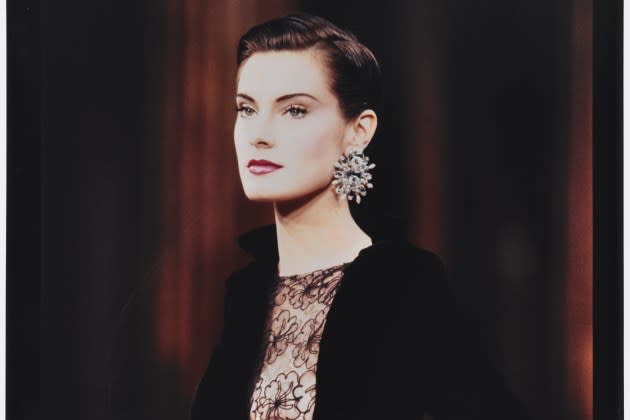
Ciara in Dundas. Janelle Monáe in Area. Sabrina Carpenter in Paco Rabanne. Ellie Goulding in Zuhair Murad. Florence Pugh in Valentino, and at least half a dozen times at that.
The list goes on.
More from WWD
For all the talk about 2023 being the year of the sheer dress — a trend going strong into 2024 if Valentino, Schiaparelli and RVDK Ronald van der Kemp’s most recent couture collections were any indication — a new exhibit at the Yves Saint Laurent Museum in Paris uncovers the historical roots of the look that dominates today.
“Sheer: The Diaphanous Creations of Yves Saint Laurent,” which opens Friday at the designer’s eponymous museum in Paris, shines a new light on his groundbreaking work with transparent textiles and his continuing influence.
For his fall ’66 couture collection, Saint Laurent debuted his first sheer look in a dress of Cigaline fabric with strategically placed sequins. Two years later, he followed with a see-through pussy-bow blouse paired with a le Smoking jacket, and one of his most legendary looks: a sheer gown with an ostrich feather skirt. The top completely exposed the chest of model Danielle Luquet.
He was the first designer to “free the nipple.”
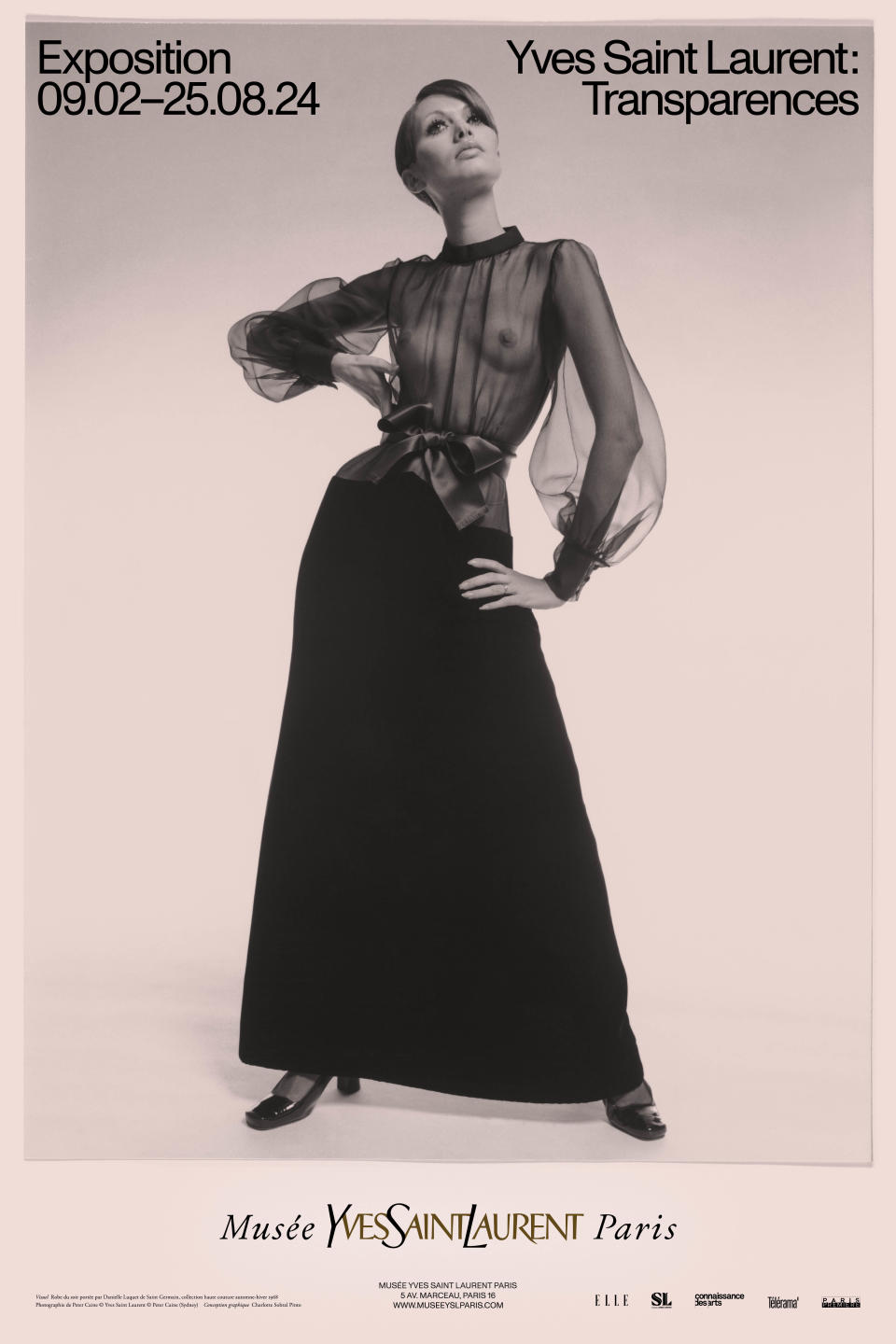
His designs were used as a tool for revealing the power of women at a time of seismic changes for the sexes. He played with the contradictions of the idea of clothing as something to cover and protect the body, and the revealing nature of the sheer fabrics. Saint Laurent reveled in the dichotomy, and encouraged women to feel powerful in their bodies.
Museum director Elsa Janssen noted that Saint Laurent completely captured the zeitgeist of the moment, and was in line with the cultural upheaval of those years. She noted that just a few years before he had been working at the house of Christian Dior when he presented another groundbreaking style — the trapeze dress. That look, which was a precursor to the A-line style, had a loose waist and lots of rigidity and volume, completely hiding the body.
With his sheer looks and strategic cutouts, he gave other body parts equal opportunity for exposure. An original sketch of a low-swooping dress which displayed the first few inches of the backside is presented in the exhibit. For another look, he placed a see-through lace heart scooped down over the rear. It’s easy to imagine each of these dresses on today’s red carpet.
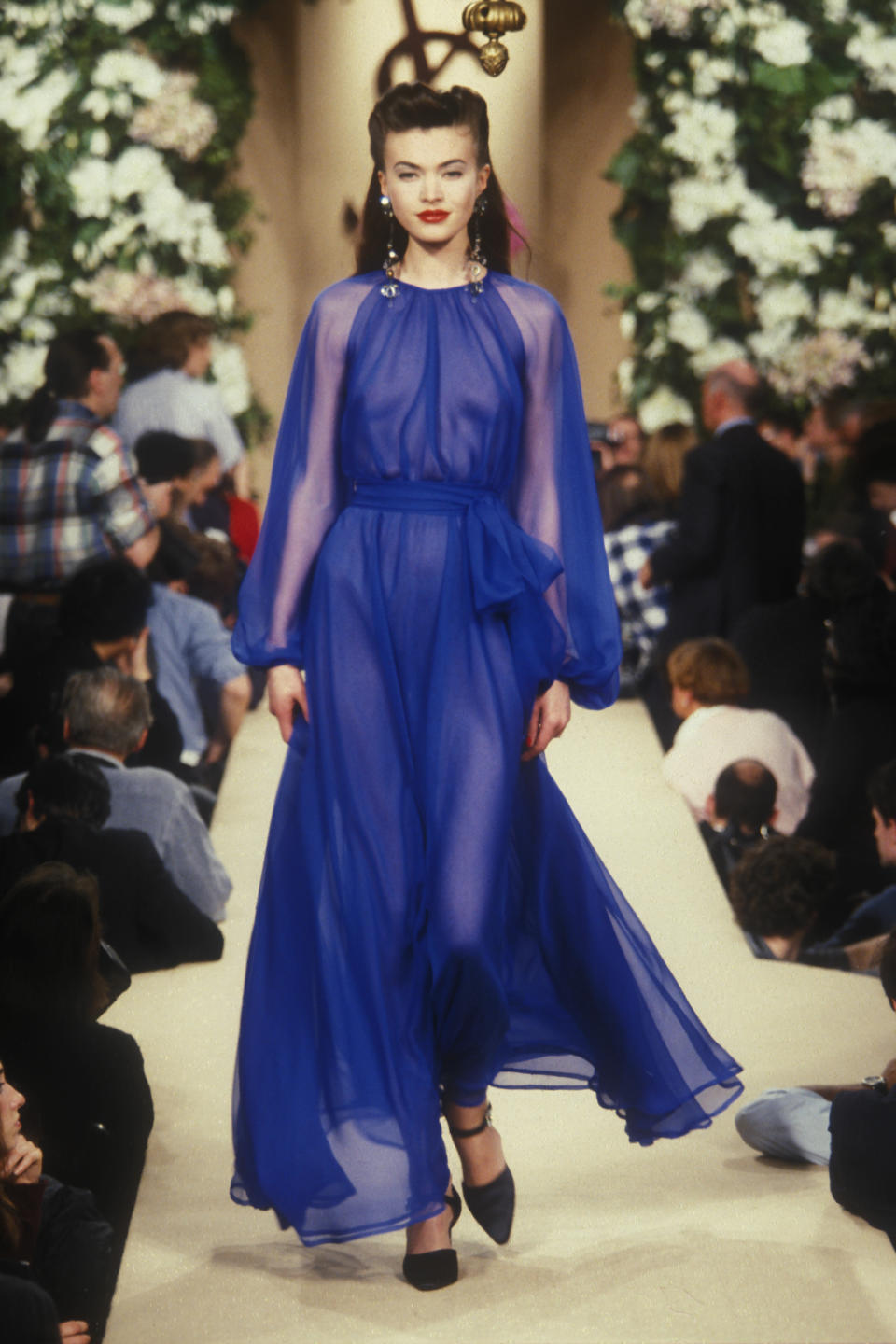
The exhibit has some of these couture pieces on display, as well as some playful pieces from his Rive Gauche line. One notable piece from the latter collection is a cocktail dress featuring a sheer top with a sparkly cup-shaped embroidered detail over each breast, with a velvet skirt that reads “Je suis belle” (“I am beautiful”) in pink sequins.
Working with sheer fabrics put the female body front and center to show a rebellious femininity, and Saint Laurent saw his work as supporting women’s liberation.
“It’s also very relevant for the female fight, which is very topical today, especially when you see some feminist movements such as Femen,” said Janssen, referring to the France-based activist group that organizes topless protests.
That also translates to what we are seeing on the runways and the red carpets. “All these female stars in the music industry who want you to see how they are comfortable in their own body,” she added. “It’s a way for the female to assume their body as a force.”
She said that the Saint Laurent brand still produces the sheer pussy-bow shirt today. “More than 60 years later, it is still important,” she said. Designers are still inspired by Saint Laurent’s work. “It’s a very exciting textile from a technical and creative point of view, because you can play with the body, but at the same time, you can also play with the structure of the garment.”
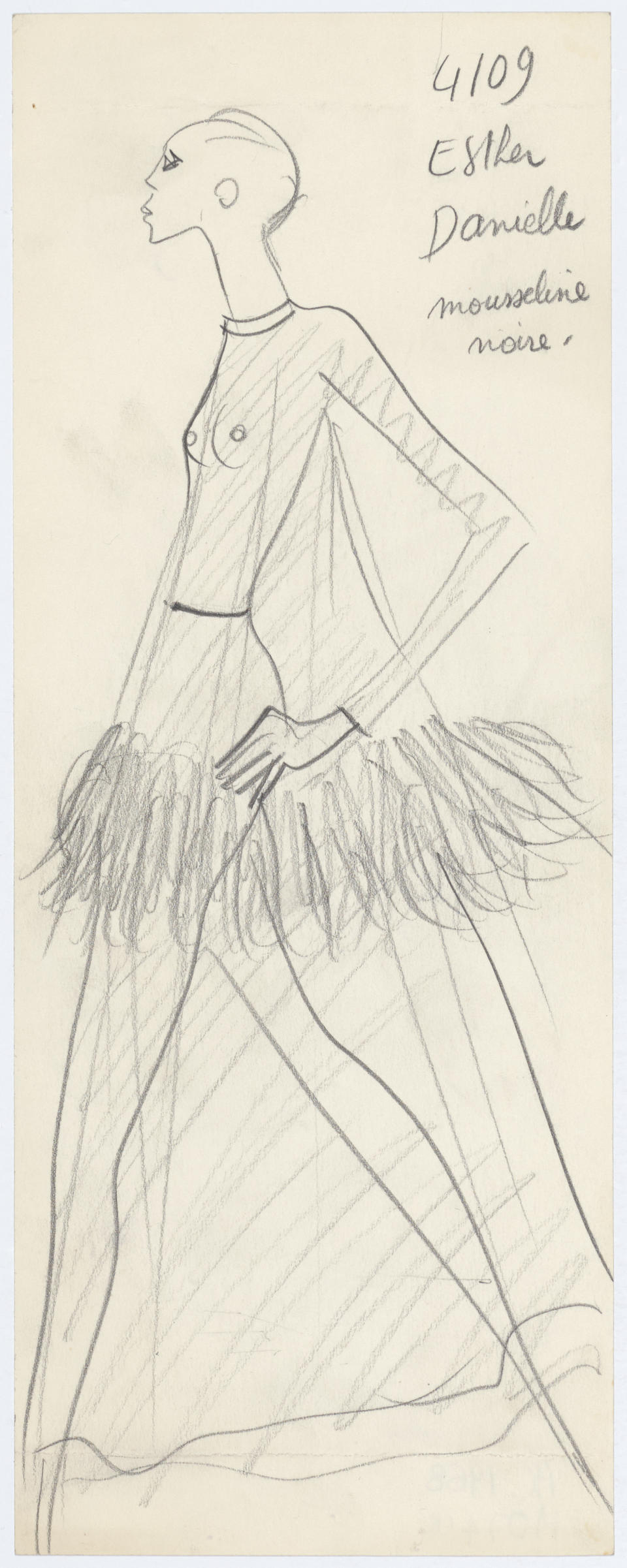
fall 1968 couture collection.
But any sartorial or political parallels were accidental in conceiving the exhibit, said Janssen.
“If anything, it’s unconscious, because you are looking at what is happening in the world. But I’m focusing on the talent of Yves Saint Laurent, and for me I’m coming from the contemporary art world so I’m looking at his garments as art pieces, so I’m always looking at one piece and making a correspondence with fine artists,” she said.
Works from other artists that examined the idea of transparency and fluidity are featured, including photos from Man Ray, sketches from Anne Bourse, a painting from Francis Picabia, and a performance video shot by the Lumiere brothers of dancer and choreographer Lo?e Fuller swirling in a pink gown.
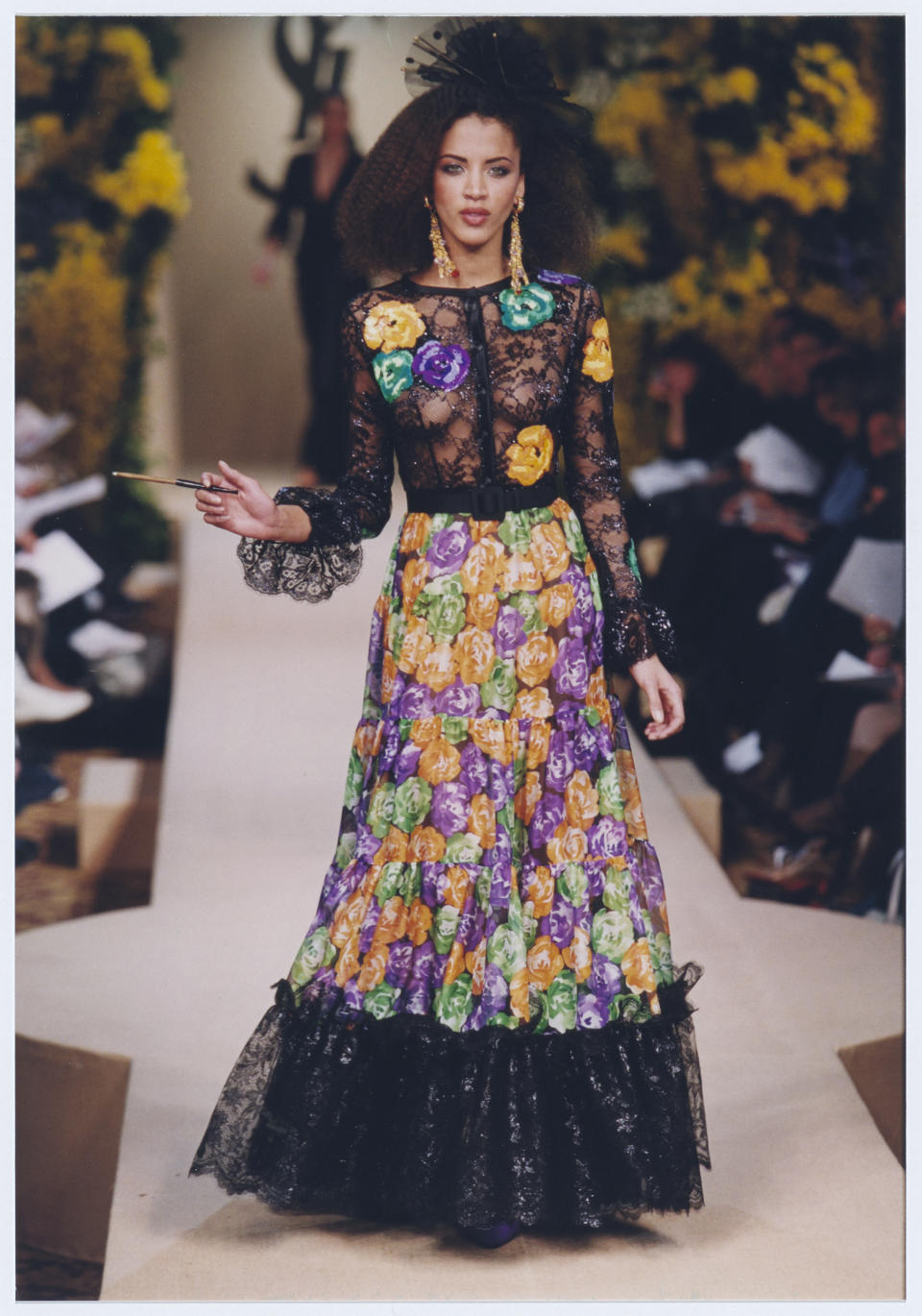
A series of Saint Laurent’s own drawings inspired by the work of Spanish painter Francisco Goya detail one of his strongest inspirations.
Forty garments are in the exhibit alongside original patterns and sketches, as well as hats, jewelry and a wall full of lace masks.
The exhibit will run until Aug. 25.
Best of WWD
